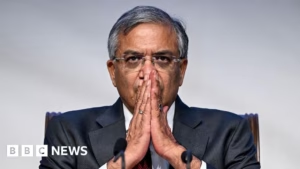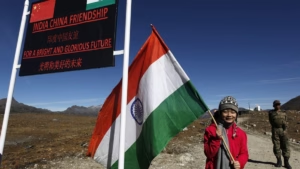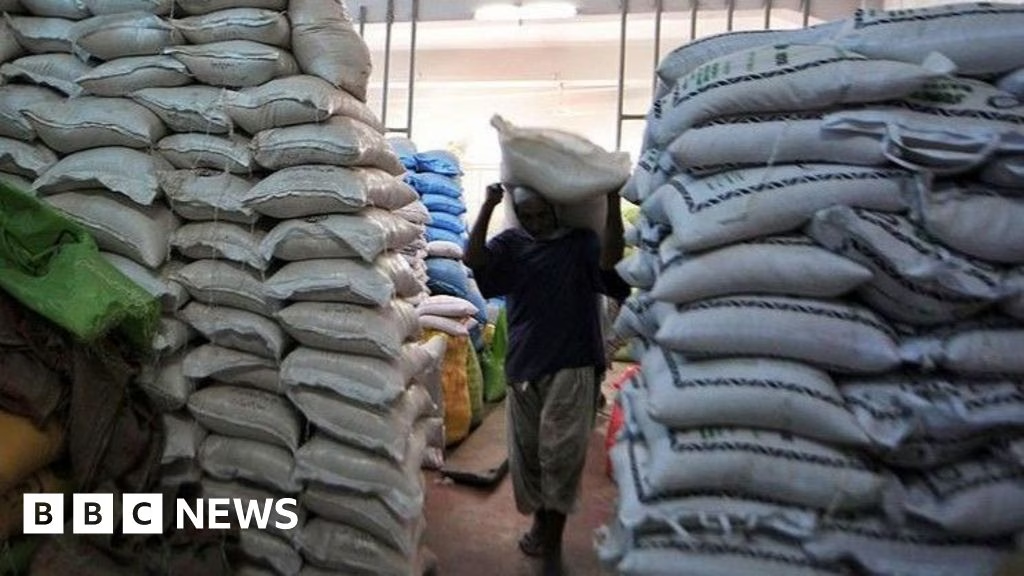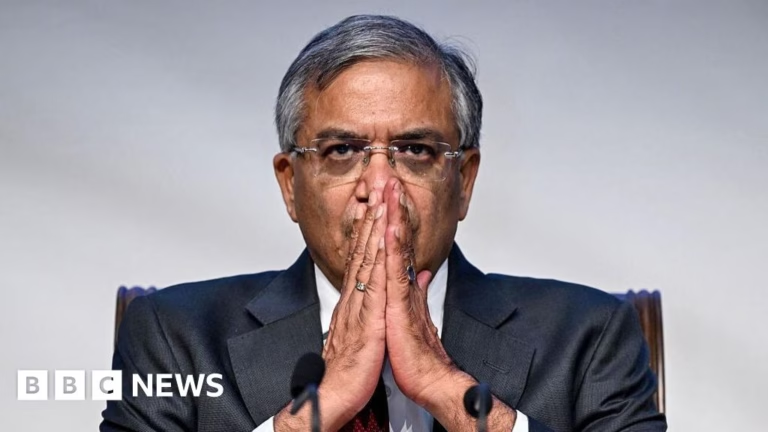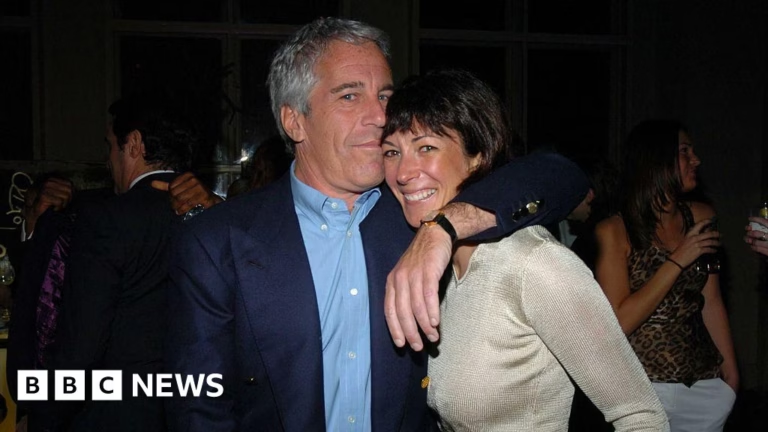 Getty Images
Getty ImagesThe dramatic political developments in Bangladesh that led to prime minister Sheikh Hasina being ousted last year have thrown up many surprises – including Dhaka’s growing closeness with one-time foe Pakistan.
Last month, after decades of troubled relations, the two countries began directly trading for the first time, with Dhaka importing 50,000 tonnes of rice from Pakistan. Direct flights and military contacts have also been revived, visa procedures have been simplified, and there are reports of co-operation on security matters.
The countries – separated by the landmass of India – have deep, painful historical ties. The animosity between them goes back to 1971, when Bangladesh – then known as East Pakistan – launched a struggle to gain independence from Islamabad.–>
This changed during Hasina’s 15-year rule from 2009 – when she was strongly backed by Delhi and maintained a distance from Pakistan. But after she fled to India following mass protests against her government, ties seem to be thawing.
“For the past 15 years, the Pakistan-Bangladesh relationship was on a slightly difficult trajectory,” says Humayun Kabir, a former senior Bangladeshi diplomat, adding that the relationship seems to now be returning to that of “two normal neighbours”.
The developments are being watched closely, particularly in India, which has a long history of hostile relations with Pakistan.
 X/Shehbaz Sharif
X/Shehbaz SharifSome experts think the reviving of relations between Dhaka and Islamabad is a strategic move.
“Pakistan and Bangladesh have a tactical relationship at the moment. Together, they want to represent a pushback against the dominance of India,” says Ayesha Siddiqa, a Pakistani academic who is a senior fellow at King’s College in London.
Muhammad Yunus, head of the interim Bangladesh government, met Pakistan’s Prime Minister Shehbaz Sharif at multilateral forums several times in recent months.
And then there is a growing military relationship.
A high-level Bangladeshi military delegation made a rare visit to Pakistan in January and held talks with influential army chief General Asim Munir. The Bangladeshi navy also participated in a multinational maritime exercise organised by Pakistan off the Karachi coast in February. .
Veena Sikri, who was India’s high commissioner to Bangladesh between 2003 and 2006, describes the growing closeness between Dhaka and Islamabad as a “déjà vu” moment.
During her tenure in Dhaka, she said, India repeatedly raised the issue of “Indian insurgents getting trained inside Bangladesh with the support of the ISI [Pakistan’s intelligence agency] and a section of the Bangladeshi military”.
“We even provided evidence to Bangladeshi authorities,” she said.
Authorities in Pakistan and Bangladesh denied these allegations at the time.
The long, porous border between India and Bangladesh makes it relatively easy for armed insurgent groups from India’s north-eastern states to cross over from Bangladesh. But, after Hasina’s Awami League came to power in 2009, it cracked down on these groups and dismantled their bases.
So the revival of military ties between Bangladesh and Pakistan is “a major security concern for India”, says Ms Sikri.
“It’s not just the military relationship. The Pakistani establishment is also reviving ties with Bangladeshi Islamist parties like the Jamaat-e-Islami, which supported Islamabad during Bangladesh’s independence war,” she adds.
The Yunus administration’s press office has flatly rejected Indian media reports that senior ISI officials have visited Dhaka. It has also described reports that claim Pakistani operatives were working to reopen a camp of an Indian insurgent group in Bangladesh as “baseless”.
Pakistan’s military did not respond to BBC questions on India’s concerns over the future role of the ISI in Bangladesh.
Analysts say Bangladeshi politicians are aware that, given the close economic and linguistic ties, Dhaka cannot afford to take an anti-India stance.
And despite apprehensions in Delhi, Bangladeshi diplomats argue that ties with Pakistan cannot be normalised unless issues related to the 1971 war are resolved.
“Pakistan’s more than 250 million population is a solid market for Bangladesh in the medium to long term,” says Sabrin Beg, an associate professor of economics at the University of Delaware.
Currently, there are constraints including high tariffs on both sides and businesses and exporters face visa and travel obstacles, she points out. However, Ms Beg says “improved bilateral political and trade relations will ease these constraints”.
Some of these issues may be discussed during Pakistani foreign minister Ishaq Dar’s visit to Dhaka in April. By the end of the year Bangladesh is expected to hold general elections and a new government may have a different set of foreign policy priorities.
But, whatever happens, the stakes are high for Delhi, which strongly feels that a stable and friendly Bangladesh is necessary to maintain peace and stability in its north-eastern states.

